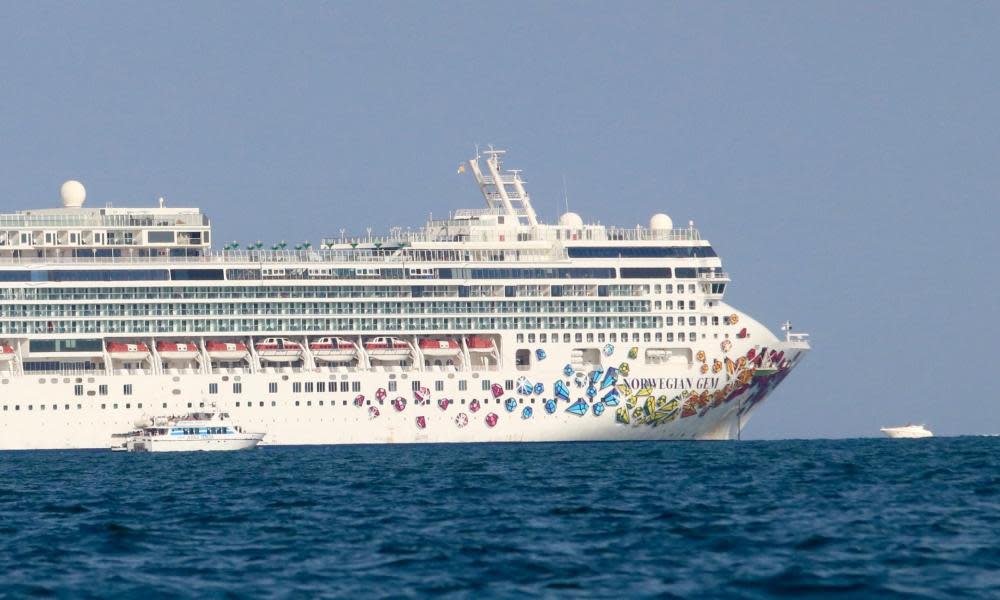Cruise passengers shuttled into Venice by motor boat to dodge big ships ban

A cruise company has circumvented a ban on its ships entering the Venice lagoon by shuttling passengers into the famous city centre on small motor boats.
Norwegian Gem, a vessel of just under 300 metres long and owned by Norwegian Cruise, anchored outside the Venice Lido early on Saturday morning. It then launched several motor boats which between them dropped about 1,500 passengers off in St Mark’s Square before picking them up again in the evening.
Related: Venice day-trippers will have to make reservations and pay fee
The move, which was authorised by Venice’s port authority, is reportedly part of an experiment after the Italian government last year banned ships weighing more than 25,000 tonnes from docking in the Unesco world heritage site.
It followed years of protests which pitted environmentalists, who saw the vessels as damaging to Venice’s fragile lagoon, against those who worried it would affect an economy dependent on tourism.
Most cruise companies have since rerouted to ports in Trieste or Ravenna, from where passengers who want to see Venice can make a bus journey of about two hours. A handful are making use of Marghera, a nearby industrial area, which has been repurposed for cruise ships as a temporary measure.
Norwegian Gem was only transiting through Venice when it dropped passengers off for the day on boats provided by the city’s port authority.
Venice’s governors had no influence over the matter, but Simone Venturini, the city’s tourism councillor, has warned against “hit and run” tourism and hoped the Norwegian Gem tactic wouldn’t set a precedent. “It’s not the type of tourism we want for the city,” he told the local press.
Italy barred huge ships from using the Giudecca canal to enter Venice’s historic centre in July 2021. The 25,000-tonne limit means only small passenger ferries and freight vessels can use the canal. The decision followed years of protests against cruise ships and a warning from Unesco that Venice was at risk of being put on the world heritage endangered list unless the vessels were permanently banned.
At the same time, the Italian government issued a call for bids for the construction of a terminal outside the Venice lagoon equipped to accommodate ships weighing more than 40,000 tonnes.
Francesco Galietti, director of the Italy unit for the Cruise Lines International Association (CLIA), said the ban had left the industry “in limbo”.
“Venice used to be a home port, which meant people would come one or two days in advance and spend time in Venice [before starting a cruise], book a hotel and eat in the local restaurants. That was the old world,” he added.
“The Norwegian episode shows that there is an ongoing struggle for Venice to remain a home port. Everything is in a state of flux and we are trying to understand what the new normal looks like.”
If the experiment by Norwegian becomes the norm, it is unclear whether cruise passengers would be obliged to pay a landing charge that Venice leaders will enact from 16 January 2023.
The fee targets day-trippers, who will have to go online to book the day on which they plan to visit Venice, paying between €3 (£2.50) and €10 a person, depending on how busy the city is on their chosen day.
Transgressors risk fines as high as €300 if they are stopped and unable to show proof that they booked and paid with a QR code.
About 80% of tourists in Venice come just for the day.
In 2019, the last full year of tourism before the pandemic, 19 million day-trippers visited Venice and provided just a fraction of the revenue compared with those staying for at least one night.

 Yahoo News
Yahoo News 
